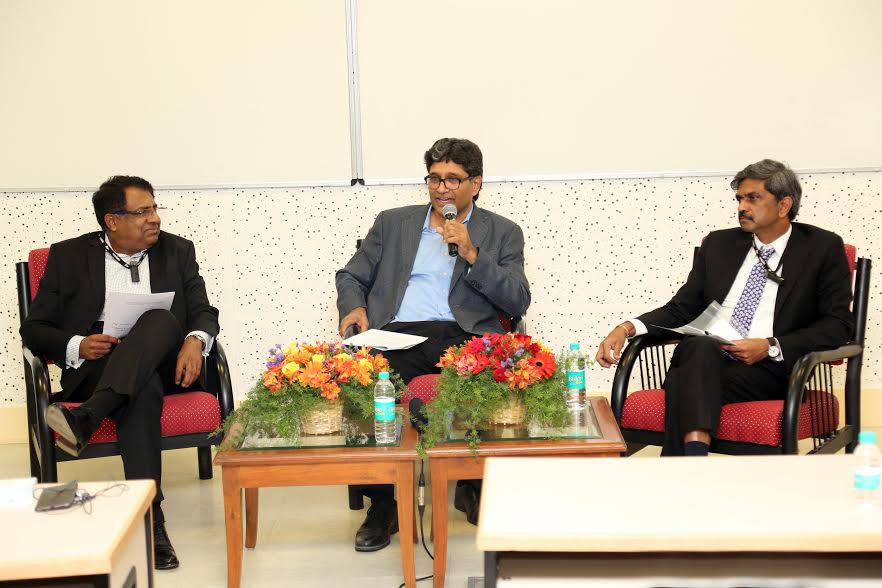Digital Governance Summit shines the spotlight on Acceleration of Digital Transformation at Senior Levels
Bengaluru: The Centre for Corporate Governance and Citizenship (CCGC) at IIM Bangalore, in collaboration with the Academy for Innovation and Management (AIM) Bangalore, presented a C-level summit on how to design and implement digital governance in a company, earlier today. The summit, held at the IIMB campus, focused on how to accelerate digital transformation at senior levels.
Manoj Chakravarti, Chief Operations Officer, CCGC, welcomed delegates to the summit, saying: “We start with a belief that governance is an enabler and digital governance is the framework for establishing accountability roles and decision making for an organization’s digital presence. In the world of today, if a business doesn’t have digital presence, it will not survive. Digital governance encompasses digital strategy, digital policy and laying down digital standards. The adoption of these will lead to digital transformation which is the nirvana that beckons the India of tomorrow.”
Prof. Anil B Suraj, from the Centre for Public Policy at IIM Bangalore, set the context of the summit by flagging points to bear in mind when adopting digital governance. Highlighting the steps necessary to achieve digital transformation, he said: “When we talk about digital adoption or governance, we are certainly moving towards a highly regulatory-based business. Government alone cannot regulate. Thus, creating an independent regulatory authority is a positive way forward.”
Dr. Ajay Kumar, Additional Secretary, Ministry of Electronics & IT, and Head of the Digital India Initiative of the Government of India, said: “Transformation is a tough business. It is difficult to achieve whether it is in businesses or government. From the government’s perspective, ‘Digital India’ is one of the most important programmes that are being driven. The kind of change that has been attempted to be brought about in a short period of time is difficult, unless digital technology is adopted and used to transform the way we have been doing things.”
Describing the government’s focus on the Digital India program, Dr. Kumar added, “Technology has been typically used for driving efficiency, for increasing productivity, for improving the bottom line, but for the first time, a conscious effort was made to see how the needs of the poor and weaker segments could be addressed using technology, how the developmental needs of the country could be met, how education helped scaling up of agriculture and a quantum leap in financial inclusion could be achieved, using technology, while there were no examples of the past from anywhere else, of instances where it had used it specifically for this purpose. Affordability, inclusivity and development orientation is something that marks Digital India.”
The highlight of the evening was the C-level panel discussion which featured panelists Anand Kripalu, CEO & Managing Director, United Spirits Limited, and Shiv Shivakumar, Chairman & CEO, PepsiCo India. The panel discussed ways to design and implement digital governance in a company. Moderated by Prof. Ram Nidumolu, Founder & Managing Director of AIM, the discussion revolved around issues on building a responsible, purposeful and sustainable business.
Explaining digital governance in simple terms, Anand Kripalu said, “At the most fundamental level, governance is doing the right thing with integrity. To undertake digital business transformation, C-level executives need to drive change top-down and have a clear understanding of the role that the Board of Directors can play, the new roles (such as that of Chief Digital Officer) that need to be created, the coordination and control mechanisms to be implemented, and how to fund and monitor digital initiatives in the company.” To this observation, Shiv Shivakumar added, “Everything that you do is now monitored, everything that you do is measured, and everything you do is commented upon in a digital world. Thus, it becomes important to have a corporate governance mechanism that allows the businesses to run smoothly.”
In the Question and Answer session that followed the panel discussion, the speakers emphasized the need for learning and adopting new ways of digital governance by C-level executives of any company to achieve the desired digital growth.

